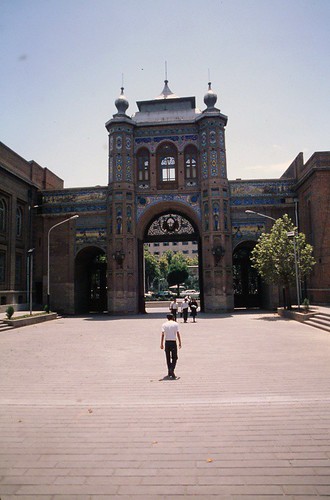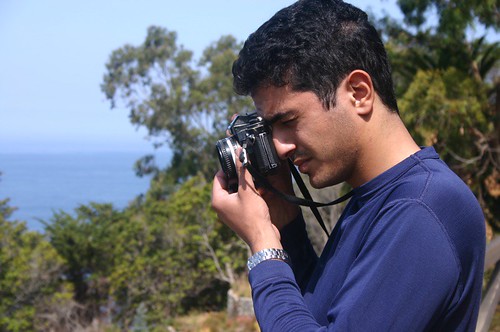Tuesday, January 30, 2007
Cancer Statistics
The article regarding world wide cancer statistics I feel was a glaring endorsment for the mission of gapminder.com. The amount of data they've acquired regarding worldwide cancer incidence and prevlance is overwhelming, and I'm sure could bring profound insights into things that plainly I couldn't see in the way the data was presented. This goes to show that more links need to be made between researchers, statisticians, and field not normally collobrated with in public health like graphic artists or designers. We're all busy, and those with power are busier than us, and to expect them to look at that data, and be inspired to act seems unlikely.
Friday, January 26, 2007
Apology
I'd like to apologize to anyone that might have been offended by my comments in class the other day regarding religion. I actually felt like offering this apology in class but thought it would be akward so opted for this cowardly version instead. Those comments should not have been made in a situation where a proper discusion could not be had so that all my thoughts could be properly elaborated upon.
Just to clarify, I'm not the anti-Christ, I come from family with many devout muslims, and I myself am a semi-practicing muslim. I have the utmost respect for anyone who has devout religious beliefs, it has just been my experience that all too often those beliefs are impossed upon others. I am of Iranian nationality and if your familiar with the history of my country, you would realize the horrors that religious indoctrination can bring, least of which being children hanging keys to unlock the gates of heaven as they walk into mine fields to clear the way for tanks.
I understand all the beautiful and positive aspects of spirituality but I'm of the opinion that we no longer need to derive our morals from documents written thousands of years ago. Our society has advanced to the point that it realizes their can't be such a thing as the "choosen people of god" and if there is a god he would not punish us for being born in a certain region whose culture does not include him.
Finally, I deeply apologize for using the world irrational in refering to people with religous sentiment. I make this mistake often, I really don't mean it as an insult. I think the pursuit of science is a purely rational endeavor attempting to attain truth, while religion is an inherently irrational endeavor based on the tenets of faith. So I don't think something based on faith can be rational, not to say that one is better or more correct than the other, but simply an observation regarding the thought proccesses involved.
Regardless, there is no excuse for making devisive comments such as the one's I made and I'll take much greater care not to do so in the future.
Just to clarify, I'm not the anti-Christ, I come from family with many devout muslims, and I myself am a semi-practicing muslim. I have the utmost respect for anyone who has devout religious beliefs, it has just been my experience that all too often those beliefs are impossed upon others. I am of Iranian nationality and if your familiar with the history of my country, you would realize the horrors that religious indoctrination can bring, least of which being children hanging keys to unlock the gates of heaven as they walk into mine fields to clear the way for tanks.
I understand all the beautiful and positive aspects of spirituality but I'm of the opinion that we no longer need to derive our morals from documents written thousands of years ago. Our society has advanced to the point that it realizes their can't be such a thing as the "choosen people of god" and if there is a god he would not punish us for being born in a certain region whose culture does not include him.
Finally, I deeply apologize for using the world irrational in refering to people with religous sentiment. I make this mistake often, I really don't mean it as an insult. I think the pursuit of science is a purely rational endeavor attempting to attain truth, while religion is an inherently irrational endeavor based on the tenets of faith. So I don't think something based on faith can be rational, not to say that one is better or more correct than the other, but simply an observation regarding the thought proccesses involved.
Regardless, there is no excuse for making devisive comments such as the one's I made and I'll take much greater care not to do so in the future.
Tuesday, January 23, 2007
Surviellance Systems
The idea Larry Brilliant presents in this TED talk of creating a surviellance system for pandemics so that we can have "early detection and early response" was trully inspiring. For the first time I could envision using all the skill and knowledge I've acquired in public health to create something of value.
As I watched him present his idea of a global surviellance system I couldn't help but think that the naturual partner for his venture would be Google. Imagine every health professional having access to software such as Google Earth where they could input cases of rare diseases or unusual symptoms, and these would be automatically plotted on to a map, where and organization like the one Larry envisioned could track any unusual outbreaks. It seems that Google would be the type of company open to such an idea, and because they use open source code it could be a collobrative effort with people in multiple areas of interest looking to make a meaningful change.
I feel like this idea is obvious and must have been explored by Larry or Google, but what if it hasn't. I'd love to hear ideas on how we could put together a framework for such a project and possible approach google on developing it throught their google Labs site.
As I watched him present his idea of a global surviellance system I couldn't help but think that the naturual partner for his venture would be Google. Imagine every health professional having access to software such as Google Earth where they could input cases of rare diseases or unusual symptoms, and these would be automatically plotted on to a map, where and organization like the one Larry envisioned could track any unusual outbreaks. It seems that Google would be the type of company open to such an idea, and because they use open source code it could be a collobrative effort with people in multiple areas of interest looking to make a meaningful change.
I feel like this idea is obvious and must have been explored by Larry or Google, but what if it hasn't. I'd love to hear ideas on how we could put together a framework for such a project and possible approach google on developing it throught their google Labs site.
Monday, January 15, 2007
Health care in Iraq

It's interesting how different the issues can be when trying to provide adequate health care to a community. In California we're currently debating how to best provide health insurance coverage to the entire population. In many of the countries in Africa they worry about how to best distribute AIDS medication to a population with a soaring HIV prevalence. And in Iraq this man wonders how best to avoid Sunni death squads as he spends the night with his wife who just gave birth to a child. How do you solve that one? Click here to listen
Friday, January 12, 2007
Contextualizing Health Interventions
I think the big question I'm left with after viewing the TED Talk by Hans Rosling is what does it actually mean to contextualize health interventions. How can we start understanding the different needs of people around the world if we're no longer going to use regional solutions? I feel like his idea of making data more accessible and more understandable by creating a more user friendly and aesthetically pleasing interface is revolutionary but without also having a similar paradigm shift in how we categorize the people of the world it will be difficult to make a real difference.


When you have these two worlds living side by side, as they do in countries like South Africa and the Sudan, how do you convince the rich of the country to worry about the poor.
Solution: ?
In my opinion I think the first world, namely Europe, the USA, and now maybe even China, need to unite and create a movement for change in the world, and begin to one by one target countries and assist them in poverty reduction and governmental corruption elimination by force if neccesary. I think the idea that the US tried to bring democracy to Iraq is bogus, but I definitely believe in the theory of democratization.
Simply:
More Responsive gov't = enhanced economic growth
Enhanced economic growth= larger purchasing power for each person
Larger Purchasing power= greater market for consumption of goods and services
Greater market= Stronger economies
I truly believe in a free market capitalist system and believe if implemented effectively it can be a real tool in fighting poverty throughout the world. We just need the powerful countries today to stop quibbling over natural resources like oil and truly dedicate themselves to improving the gov'ts of poorer countries, if not for them, then for our own economy.


When you have these two worlds living side by side, as they do in countries like South Africa and the Sudan, how do you convince the rich of the country to worry about the poor.
Solution: ?
In my opinion I think the first world, namely Europe, the USA, and now maybe even China, need to unite and create a movement for change in the world, and begin to one by one target countries and assist them in poverty reduction and governmental corruption elimination by force if neccesary. I think the idea that the US tried to bring democracy to Iraq is bogus, but I definitely believe in the theory of democratization.
Simply:
More Responsive gov't = enhanced economic growth
Enhanced economic growth= larger purchasing power for each person
Larger Purchasing power= greater market for consumption of goods and services
Greater market= Stronger economies
I truly believe in a free market capitalist system and believe if implemented effectively it can be a real tool in fighting poverty throughout the world. We just need the powerful countries today to stop quibbling over natural resources like oil and truly dedicate themselves to improving the gov'ts of poorer countries, if not for them, then for our own economy.
The Journey
Subscribe to:
Posts (Atom)

